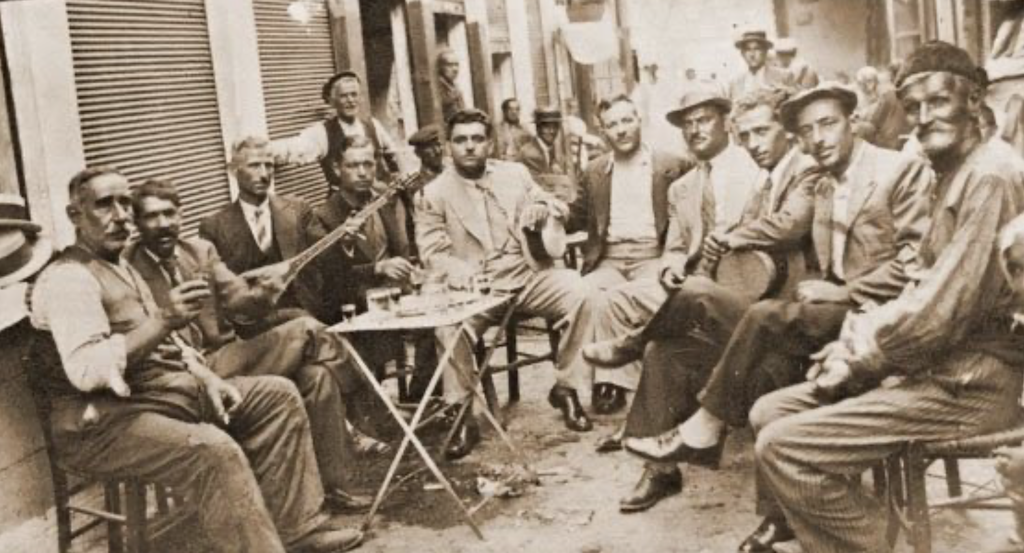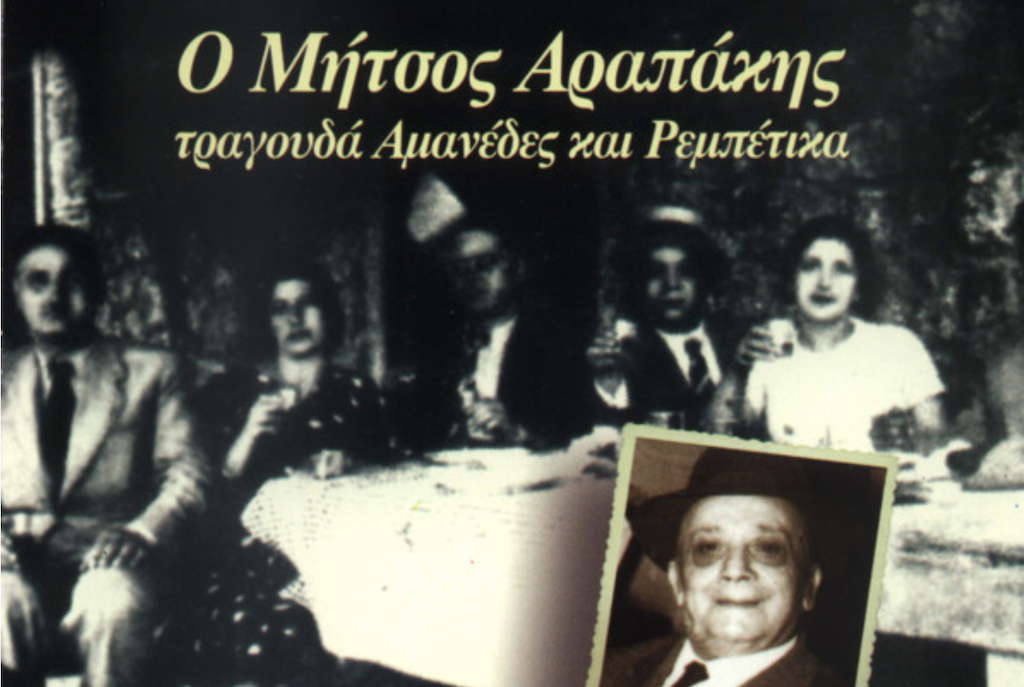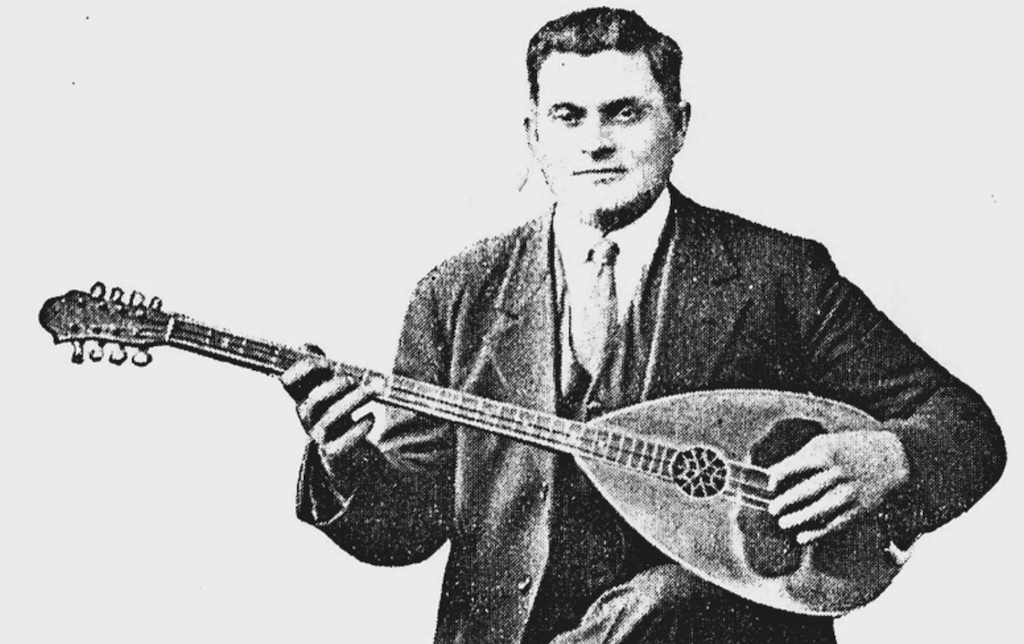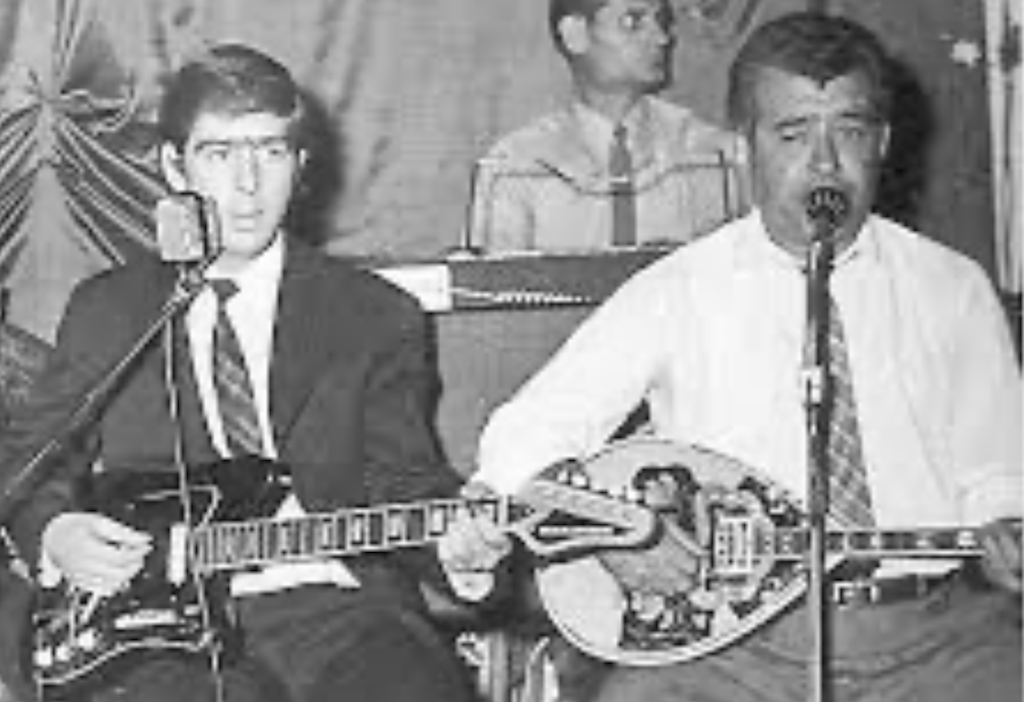This was interesting: while researching a song the other day, I came across a short essay that added another layer of complexity to the word rebetiko.
The origins of the word are pretty much unknown, although there are plenty of theories. The Rough Guide to World Music says “..the favourite candidate [for its origin] being the old Turkish word harabat, whose meanings cover both shanty town, drunkard and bohemian…” Elias Petropoulos, in Songs of the Greek Underworld, supports the idea that it came into Greek from a different Turkish word that meant the leader of group of underworld characters in Istanbul. (The Greek word was tsiribasis.) Gail Holst, in Road to Rembetika, also lays claim to a Turkish origin, although she doesn’t identify the word other than as meaning outlaw.
Wikipedia points to a 1614 Greek-Latin dictionary published in Holland, and the word rempitos (ῥεμπιτός) “is defined as a ‘wanderer’, ‘blind’, ‘misguided’, etc.” And researcher Ed Emery wrote a whole essay on The Problem of the Etymology of “Rebetis” and “Rebetika,” offering dozens of possible origins, including the Arabic word “ribaat.” I could go on, but won’t.
Last week, at the Kounadis Virtual Archive Museum, I came across a short, unsigned essay that posits that rebetiko was a musical term brought into widespread use by companies doing early recordings of the music that would become rebetiko. (The original is in Greek: Auto translation was required.)
Briefly:
“Research on these documents of historical discography reveals that the term ‘rebetiko’ began to be printed on the labels of records around 1912, in Greek recordings made in Constantinople.
So far, at least 80 recordings have been identified with the term written on the label.
There are two striking facts: on the one hand, these recordings took place in the 1910s, 1920s and 1930s. [Markos] Vamvakaris began recording in Athens in 1933. Therefore, his own recording career cannot be easily and exclusively identified with the term. On the contrary, the word ‘rebetiko’ begins to disappear from labels after 1933.”
I’m not sure totally I buy that as the sole point for adoption of the term rebetiko. For one thing, it doesn’t address what the musicians were calling the music before that 1912 recording. (On the other hand, Vamvakaris, in his autobiography, referred most often to the music he made as folk songs and laiko – as near as I can remember – as did Angeliki Vellou-Keil, who wrote the introduction.)
It’s unlikely we will ever know the precise origin of the term, or whether it was recording companies or performers who first used it, or whether it’s anything other than a mid-20th century adaptation as a way of classifying urban Greek music.
And that really doesn’t matter: the music is the music regardless of the tag.











Leave a Reply